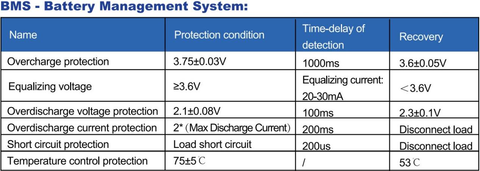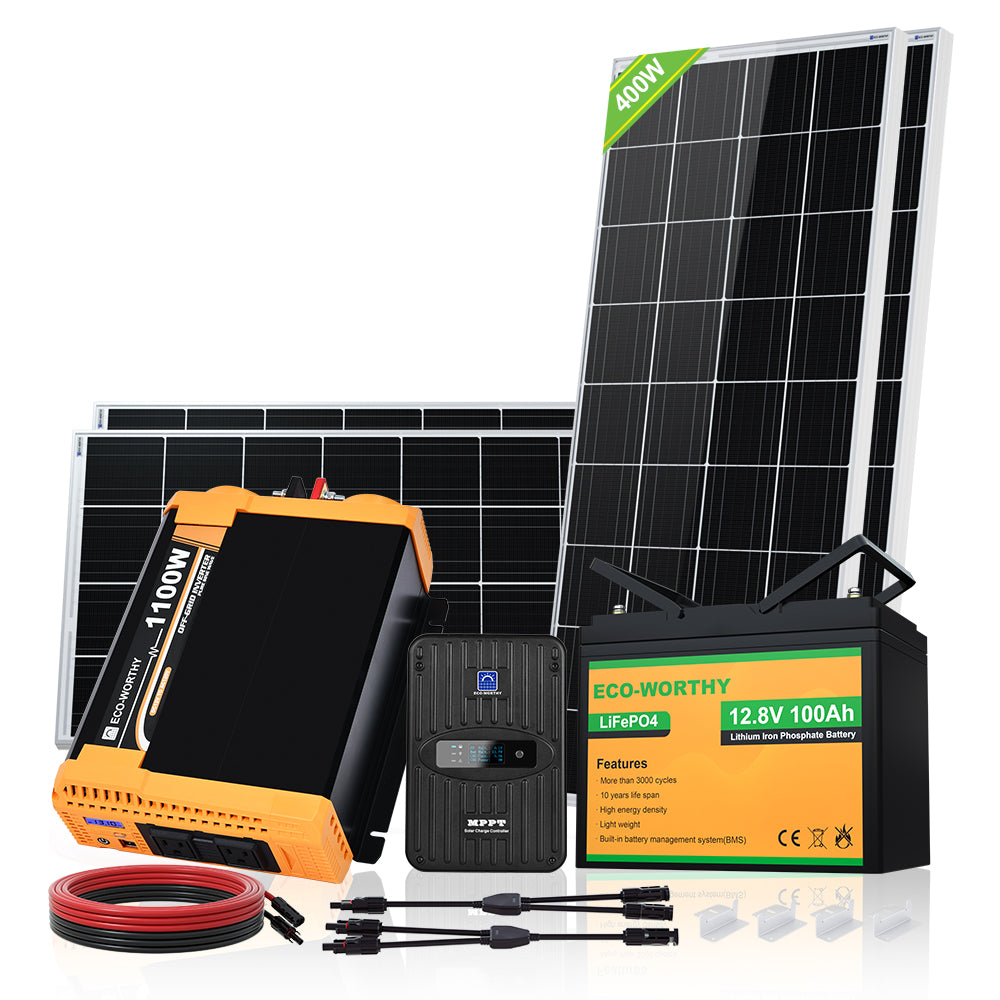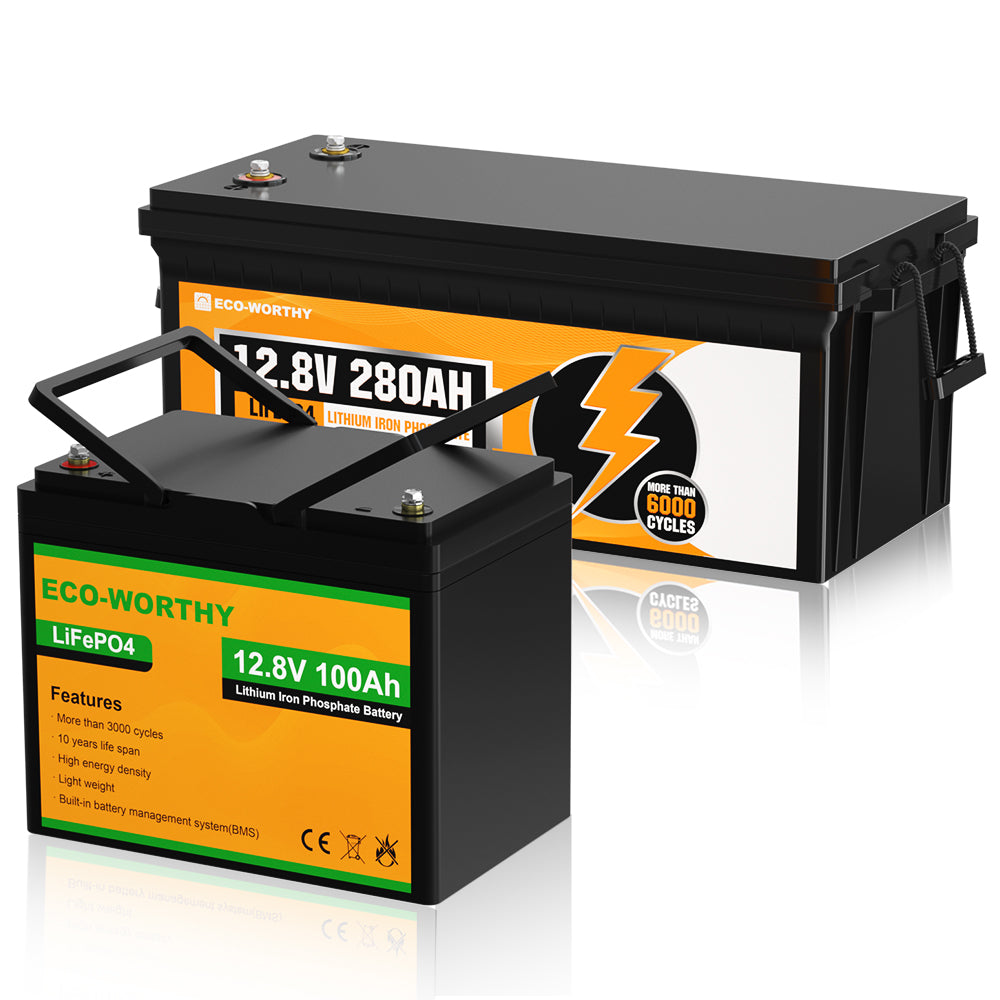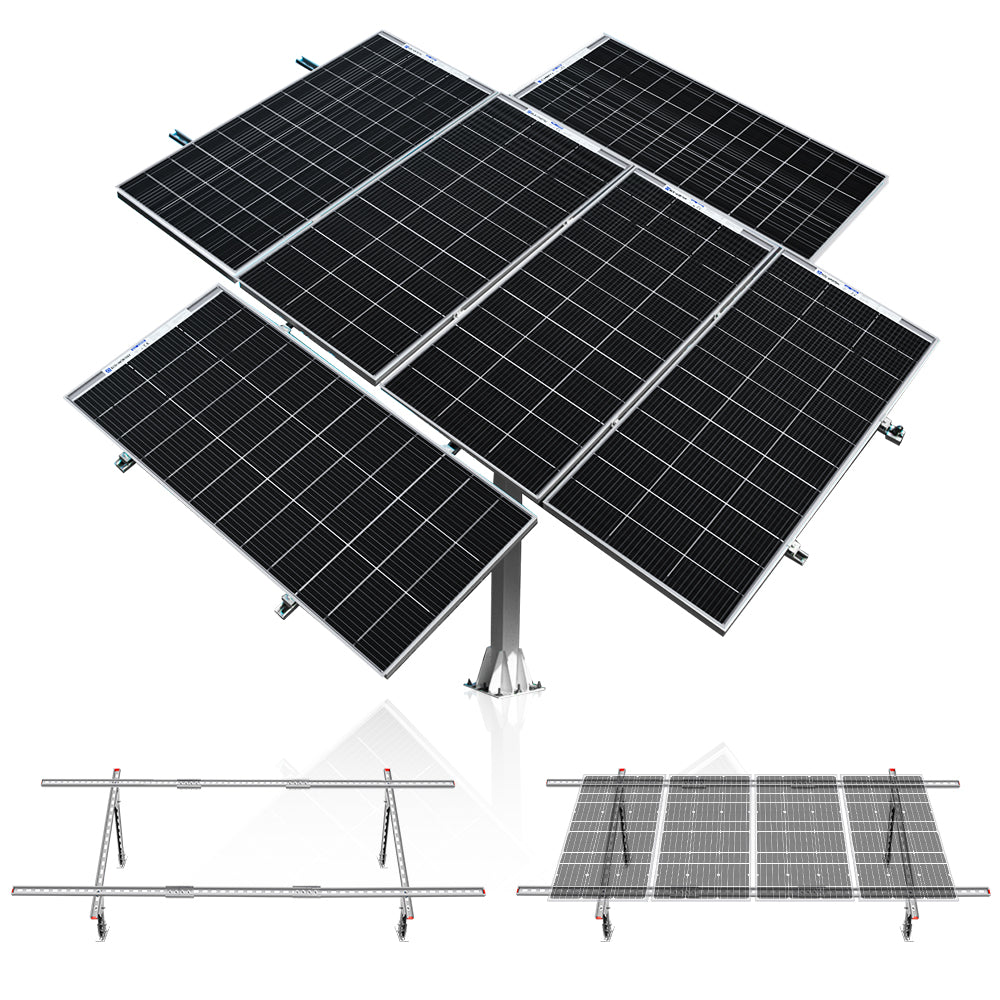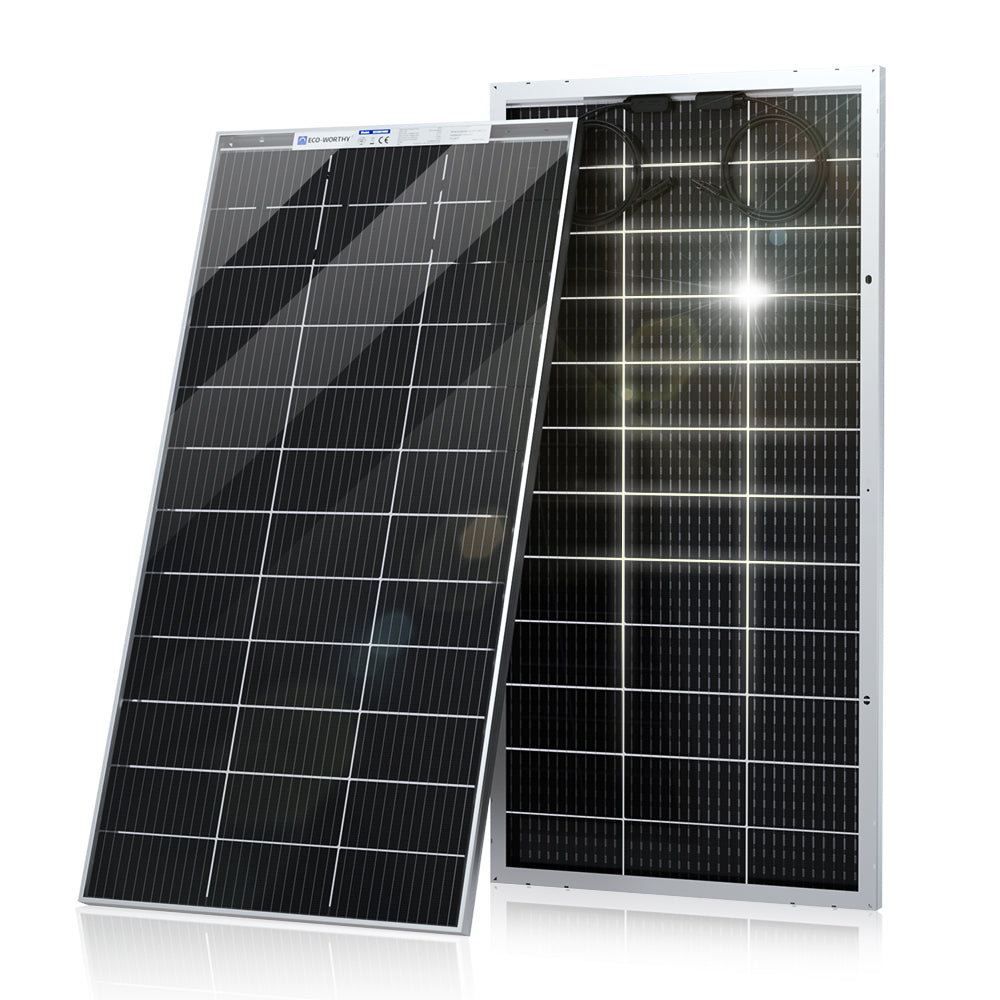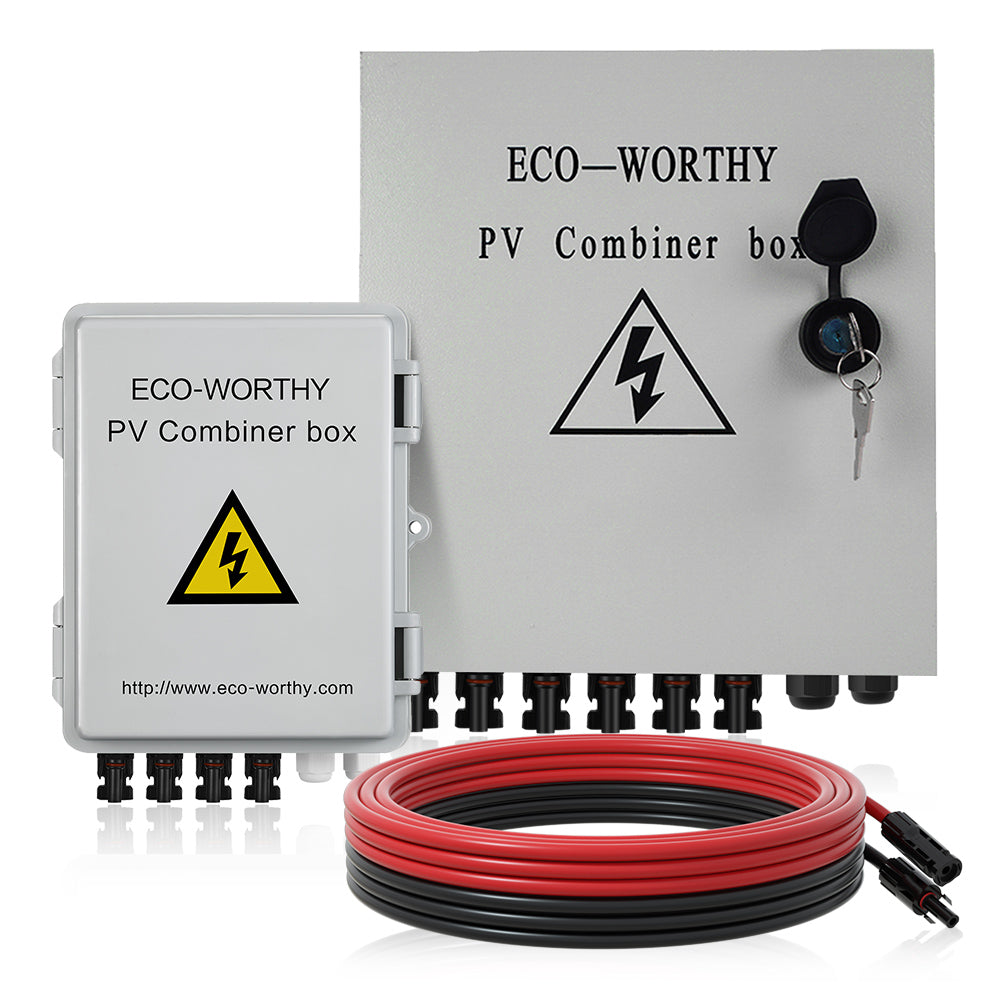Every RV’er knows that quality engine and house batteries are key to a successful travel experience, but not everyone understands the pros and cons of different battery types. Is there much of a difference between the two main types of batteries, lead-acid vs. lithium-ion?
1. Cost of Lithium-Ion vs. Lead-Acid
Currently, our 12V 100Ah Lead Acid battery costs $199.20. The full 100Ah is certainly usable, so that means 12V*100Ah=1200Wh in energy storage. With lead-acid only 80% is really reasonably useful, going into the bottom 20% of energy storage is a recipe for permanent battery damage. so we have 1200Wh*0.8=960Wh in energy storage, so makes about $0.2 per Wh in usable energy storage.
And, our 12V 100Ah Lithium Iron Phosphate Battery costs about $519.99. Referring less than $0.5 per Wh in usable energy storage.
Then, if you are new with those batteries, you may have one question, why the Lithium Iron Phosphate Battery cost about 2 times than lead acid battery.
The lead acid battery is good for around 2000 cycles at 50% Depth-Of-Discharge (DOD), while the Lithium-Ion battery will do 6000 cycles at that same 50% DOD. That means the lithium-ion battery is going to last about 3x as long! Then we take life time of battery in consideration, 2x purchase cost exchange 3x life time of battery.
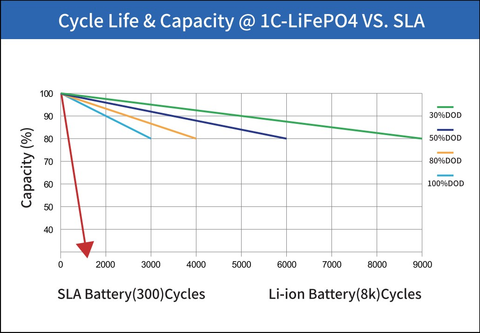
2. Smaller, Lighter, but longer lifespan
One 100AH lead acid battery Weight: 61.7lbs, Size: 12.8*8.46*6.61inch. However lithium battery weight: 22.9lbs, size: 12*6.8*8.5inch, much more smaller and lighter.
LiFePO4 is finding a number of roles in vehicle use, utility scale stationary applications, and backup power.
Imagine that when you want a scooter or RV to travel much longer and with limit room for add more battery, then replace old lead acid with new LiFePO4 batteries, would be a nice shoot. Again If you do make a battery go the distance, there is watering, measuring specific gravity, and taking care to regularly recharge them lest they sulfphate. None of that is needed for lithium-ion.
One important advantage is that LiFePO4 have better thermal and chemical stability than lead acid battery, that makes them are more safe in daily usage.
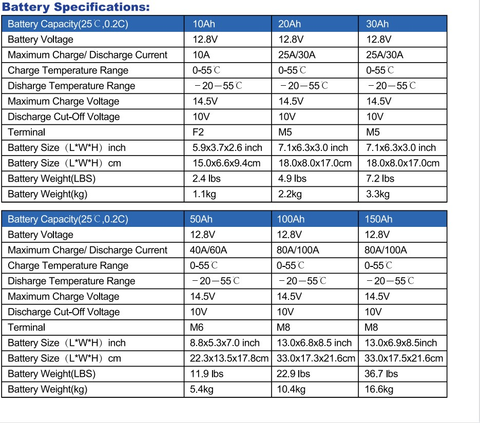
3. BMS (Battery Management System)
The BMS is a set of electronics that monitors and manages all of the battery’s performance. Most importantly, it keeps the battery from operating outside of its safety margins.
The battery management system is critical to the battery’s safe operation, overall performance, and longevity. Moreover, it protects whatever the lithium battery is installed in (boat, RV, etc.) and the people who are using it.
And lead acid battery don’t have BMS and need extra regular for protection.
